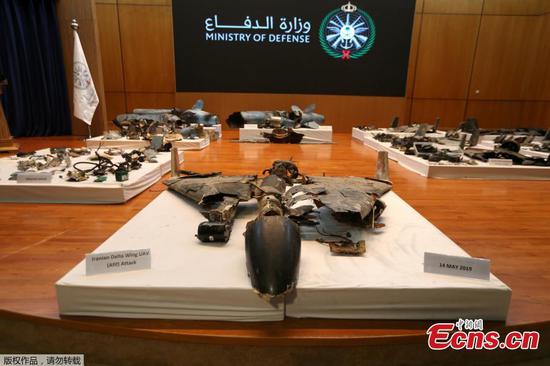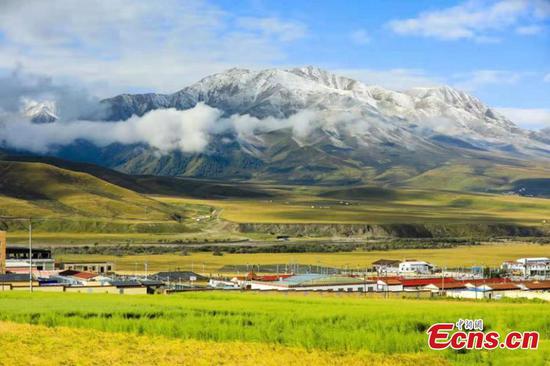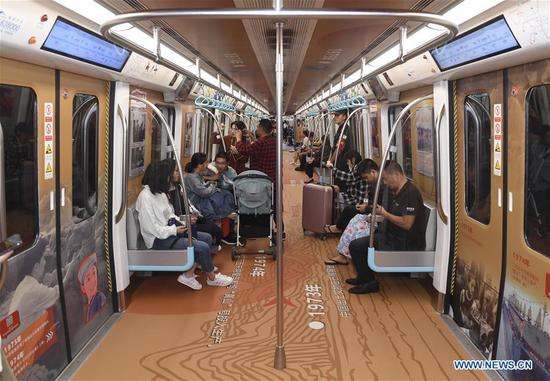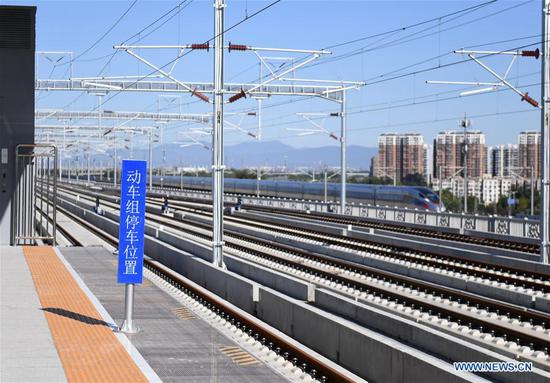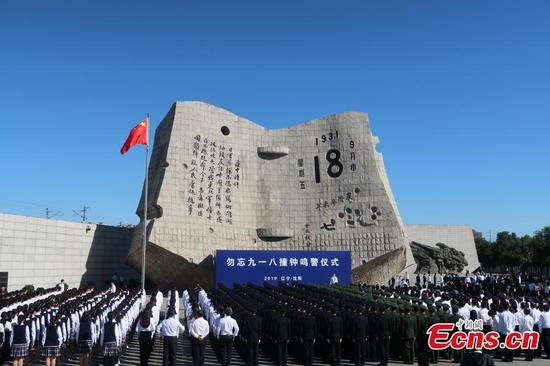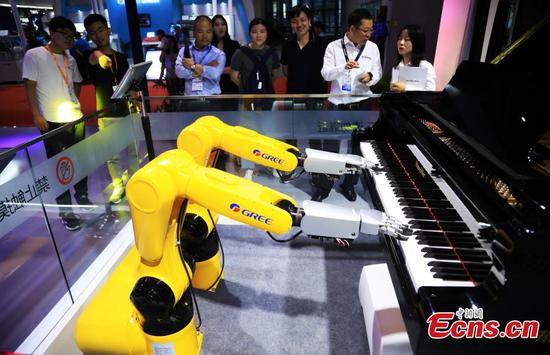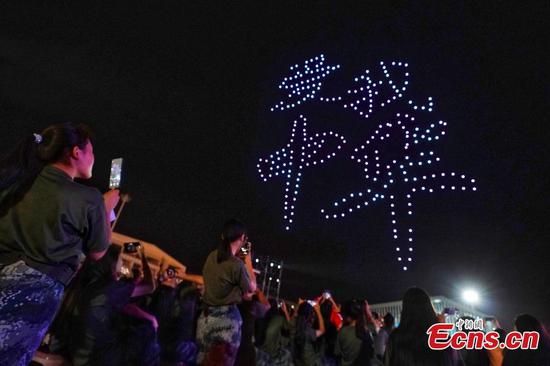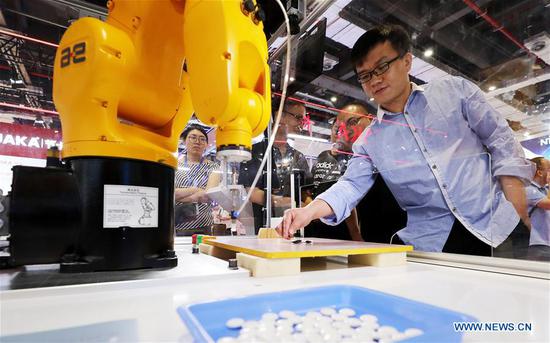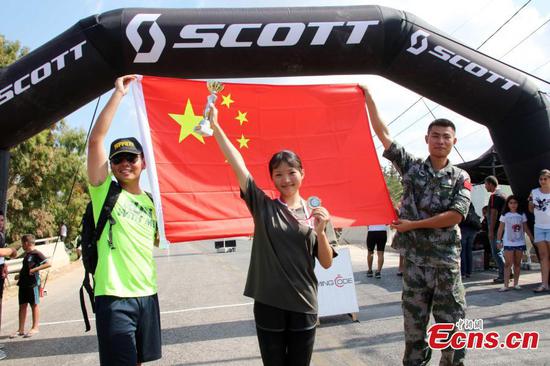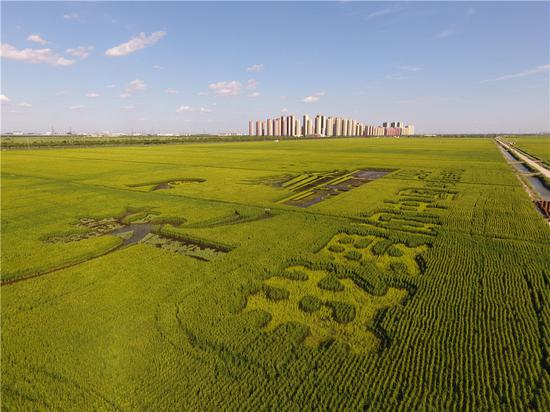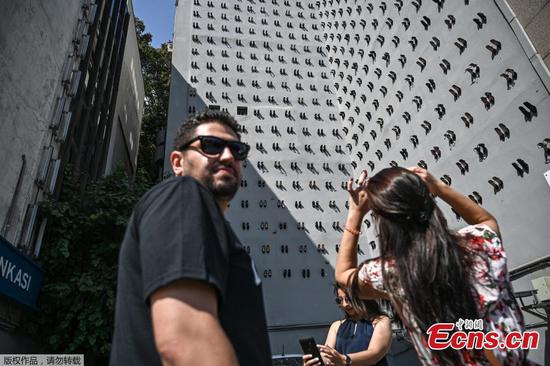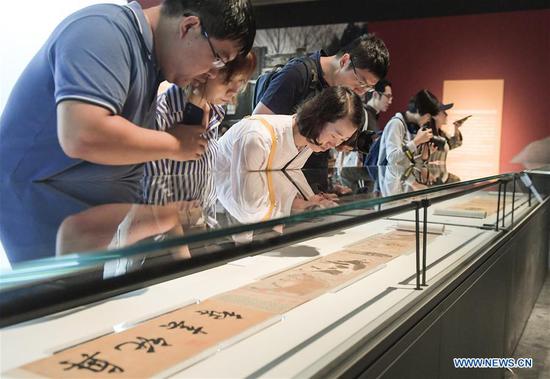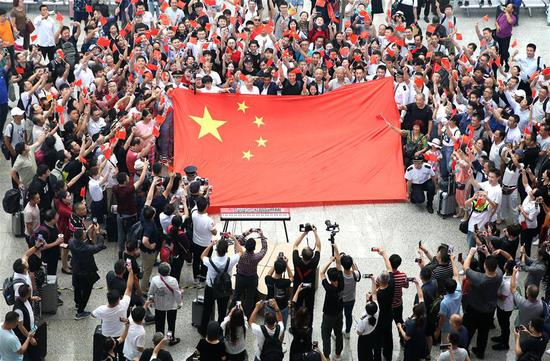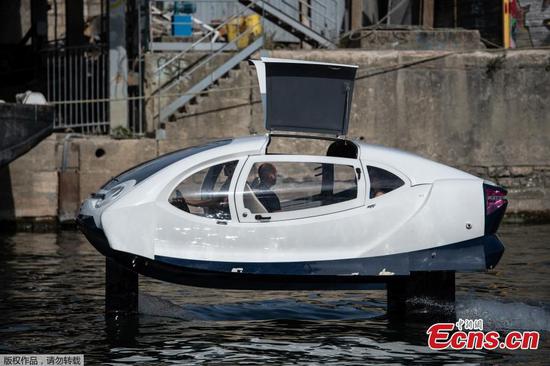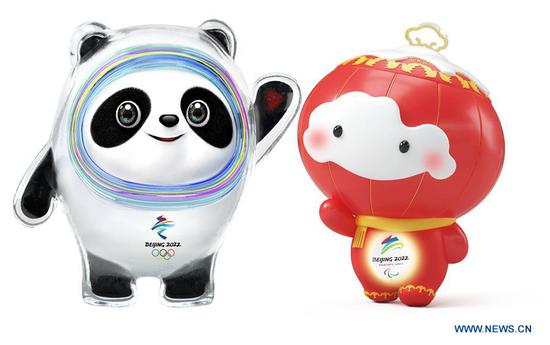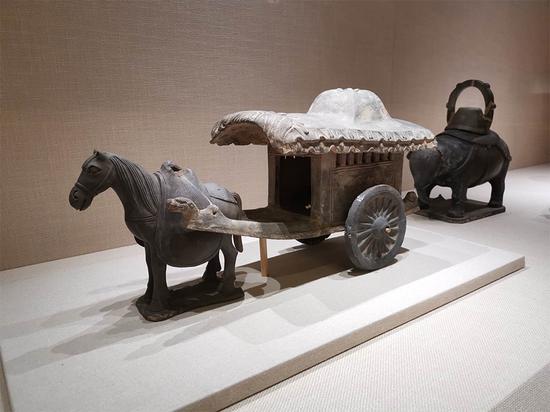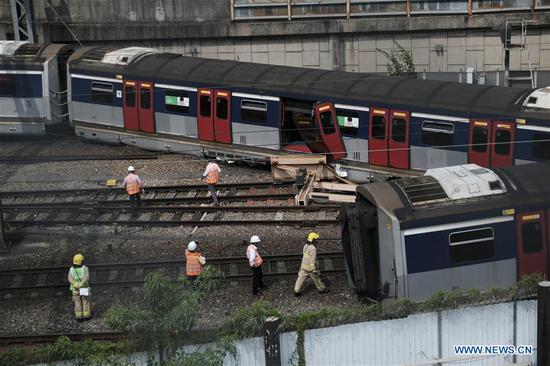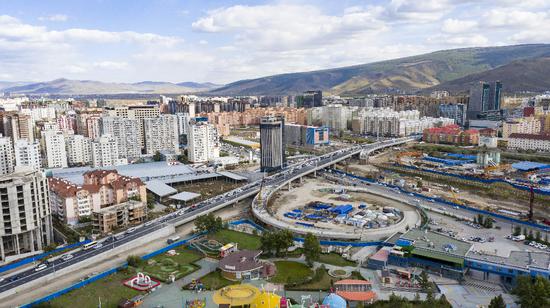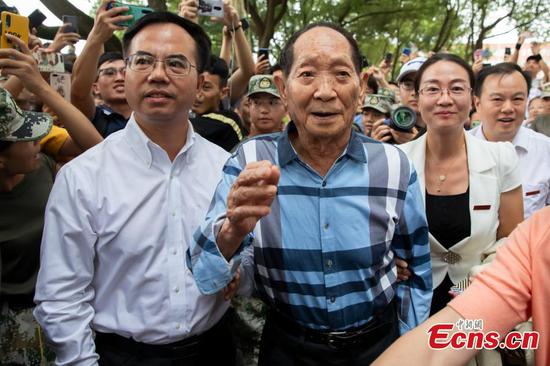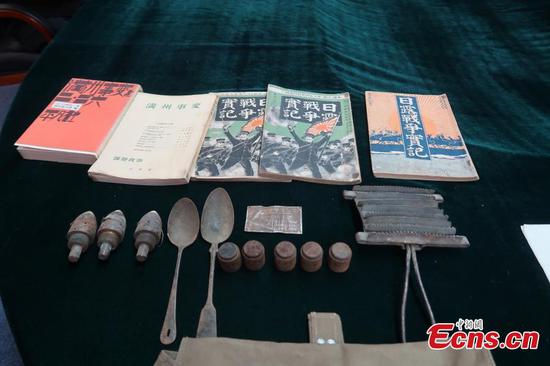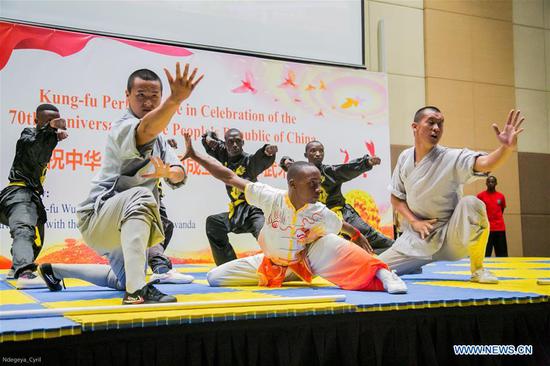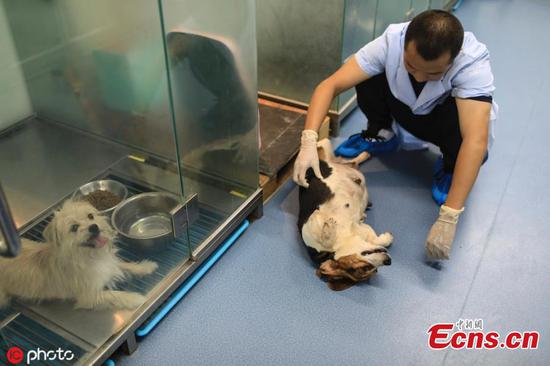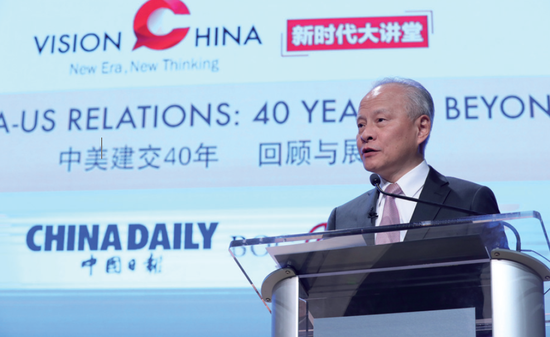
As the China-U.S. relationship sits at another crossroads, the world's two largest economies should come together by expanding cooperation rather than "decoupling" from each other, Chinese Ambassador to the U.S. Cui Tiankai said Tuesday.
"We have learned from the past four decades that cooperation is the only right option for us," China's top envoy to the U.S. said as he delivered the keynote address at a Vision China event in New York. "It is something we should always uphold."
The forum, "China-U.S. Relations: 40 Years &Beyond", hosted by China Daily and Bank of China, featured commentary by experts intricately involved in Sino-American relations.
"Decoupling our two countries in trade and industrial development goes against globalization and the tide of history. And considering China's advantages in cost, market and supply chain and its growing edge in innovation, to decouple from China is to decouple from opportunities," Cui said.
Cui's remarks came amid trade differences between the two countries that date to early 2018. Another round of talks between the countries' top trade negotiators is scheduled for early October.
"The trade war the U.S. launched and repeatedly escalated was based on a wrong rationale in the very beginning, and its negative impact has now hit both countries and spilt over to the whole world," said Cui.
Scientific, technological and people-to-people exchanges between the two countries also are hard to decouple, Cui added.
China and the U.S. differ on some issues, said Cui; however, instead of justifying confrontation or conflict, the disagreements should be seen as opportunities and potential for complementarity and cooperation.
"It is extremely dangerous and irresponsible to base America's policy on alarmism and label China as a strategic rival and even adversary," said Cui.
He refuted the rhetoric that a rising China will "displace the U.S. to be the world's new hegemon", and said China aspires to pursue happiness for its people, rejuvenation for the nation and harmony for the world.
Despite the economic advancement achieved by China in past decades, the country still faces tough challenges, including eliminating poverty, preventing and resolving systemic risks, and preventing and controlling pollution, noted Cui.
"China develops itself to deliver a better life to its people, not to scramble for global dominance," Cui said.
Cui pointed out that China's development has served other countries, including the U.S., and any decoupling of China and the U.S. is hardly possible, given the inseparable links between the two.
The bilateral relationship has major bearing on world stability and prosperity, said Cui, and the two nations could cooperate to deal with global issues such as nuclear proliferation, terrorism, climate change, and natural disasters and challenges.
While the U.S. will remain "the world's strongest country a long time to come", whether it can take an open and confident approach to China's development "will affect its future, and will determine the direction of China-U.S. relations and very probably the future of the world", Cui said.









